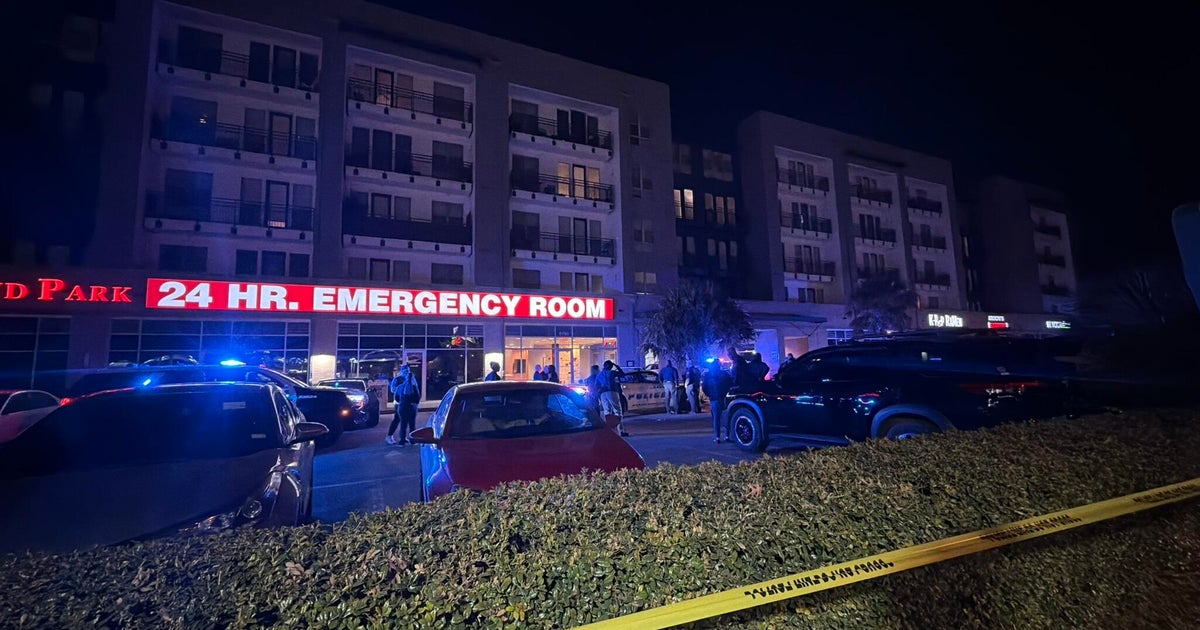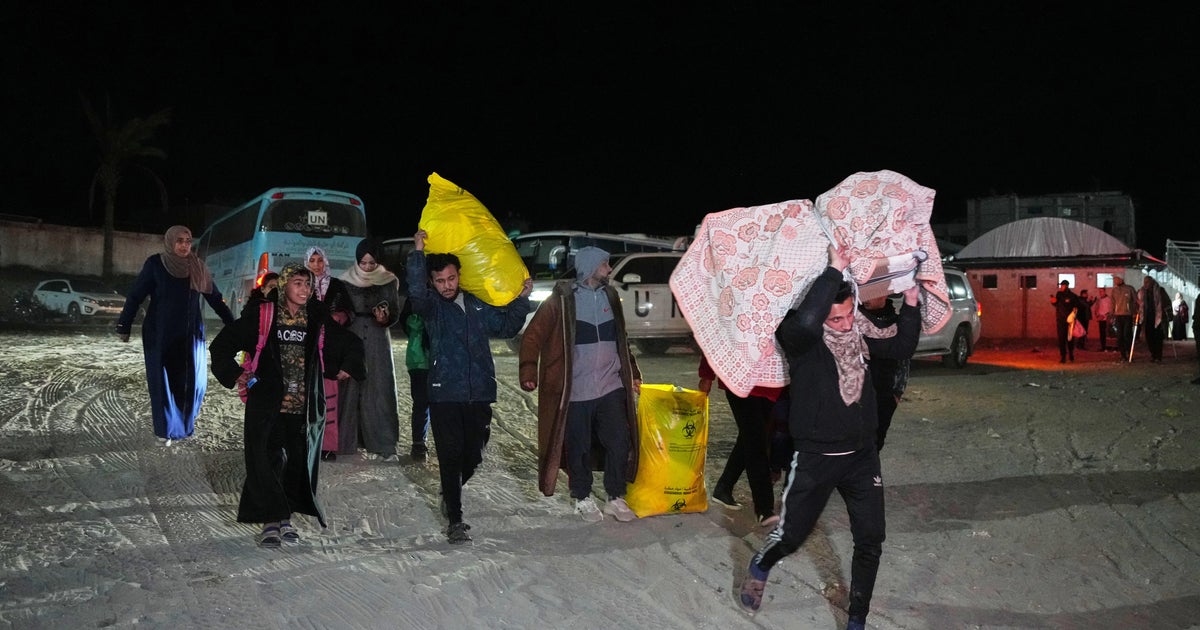U.S. has intel that Russian commanders have orders to proceed with Ukraine invasion
Washington — The U.S. has intelligence that Russian commanders have received orders to proceed with an invasion of Ukraine, with commanders on the ground making specific plans for how they would maneuver in their sectors of the battlefield, a U.S. official told CBS News.
The orders don't mean a invasion is a certainty, as Russian President Vladimir Putin could still change the orders if he changes his mind, the official said.
After weeks of warning that an invasion of Ukraine was imminent, President Biden told reporters on Friday that he was "convinced" Putin had made the decision to invade Ukraine and said the U.S. believed Russian forces intended to attack in the "coming days."
Mr. Biden has agreed "in principle" to meet with Putin in the near future, provided an invasion has not begun, the White House announced Sunday night. The exact timing and location of such a talk have not been determined, but if it does happen, it would occur sometime after a meeting scheduled for this week between U.S. Secretary of State Antony Blinken and Russian Foreign Minister Sergey Lavrov.
Blinken told "Face the Nation" that the U.S. still believes Russia is "moving forward" with plans to invade, despite denials from Moscow that Russia is preparing to launch an attack.
"Everything we're seeing tells us that the decision we believe President Putin has made to invade is moving forward," Blinken said. "We've seen that with provocations created by the Russians or separatist forces over the weekend, false flag operations, now the news just this morning that the 'exercises' Russia was engaged in in Belarus with 30,000 Russian forces that was supposed to end this weekend will now continue because of tensions in eastern Ukraine, tensions created by Russia and the separatist forces it backs there."
Russia has massed roughly 150,000 troops, warplanes and equipment on Ukraine's three sides, escalating tensions with the neighboring country. The defense minister of Belarus also announced Russia will be extending military drills taking place in the country near Ukraine's northern borders, which brought a large contingent of Russian troops to Belarus.
In anticipation of an attack, the U.S. and other allies, most recently Germany and Austria, have urged their citizens to leave the country. The U.S. Embassy in Ukraine also temporarily relocated its operations from Kyiv to Lviv due to the acceleration in the buildup of Russian forces.
The U.S. Embassy in Moscow issued a security alert on Sunday warning that "according to media sources, there have been threats of attacks against shopping centers, railway and metro stations, and other public gathering places in major urban areas, including Moscow and St. Petersburg as well as in areas of heightened tension along the Russian border with Ukraine."
The alert from the State Department urges U.S. citizens in Russia to take several actions, including avoiding crowds and having evacuation plans that don't rely on federal government assistance.
While top U.S. officials have warned Russia is poised to strike Ukraine and the Pentagon has sent roughly 5,000 troops to Eastern Europe to bolster NATO forces, the Biden administration continues to keep a diplomatic option on the table. The president has stressed no American forces would go into Ukraine if Russia invades.
"My job as a diplomat is to leave absolutely no stone unturned and see if we can prevent war, and if there's anything I can do to do that, I'm going to do it," Blinken said Sunday. "President Biden has made very clear that he's prepared to meet President Putin at any time in any format if that can help prevent a war. Even if the die is cast, until it's settled, until we know that the tanks are rolling, the planes are flying, and the aggression has fully begin, we're going to do everything we can to prevent it but we're prepared either way."
Oksana Markarova, Ukraine's ambassador to the U.S., said Ukrainian officials are using "every possibility" to force Russia to choose the diplomatic path rather than an attack.
"We are calling not only on [the] aggressor, which is Russia, but also on all of our friends and allies to get together and use every opportunity to still deter Russia from invading," she told "Face the Nation."
Markarova said that while Ukraine will "work day and night to make use of any possibility to still prevent Russia from invading," events of the past few days indicate that an escalation is likely, contrary to comments from Russian Ambassador to the U.S. Anatoly Antonov that there is no plan for Russia to invade.
"What we see right now are all the strong messages are yet to get Russia not only to get out from the borders of Ukraine but they also, during the past three days, started an offensive," she said.
Ukrainian President Volodymyr Zelensky, too, has called on Putin to meet with him to work to resolve the crisis, but he also criticized Western leaders gathered at a security conference in Munich on Saturday, arguing they should not wait for an attack to hit Russia with sanctions.
The Biden administration has warned that if Putin orders an attack on Ukraine, there would be steep consequences for Russia, and Blinken said Sunday that slapping Russia with sanctions now would mean the loss of the "deterrent effect."
"Once you trigger the sanctions, you lose the deterrent effect," he said. "As long as there is still even a minute's worth of time in which we can deter and prevent a war, we're going to try to uses it."
Blinken added that the U.S. doesn't want to detail its plans publicly, as "that will forewarn Russia."




